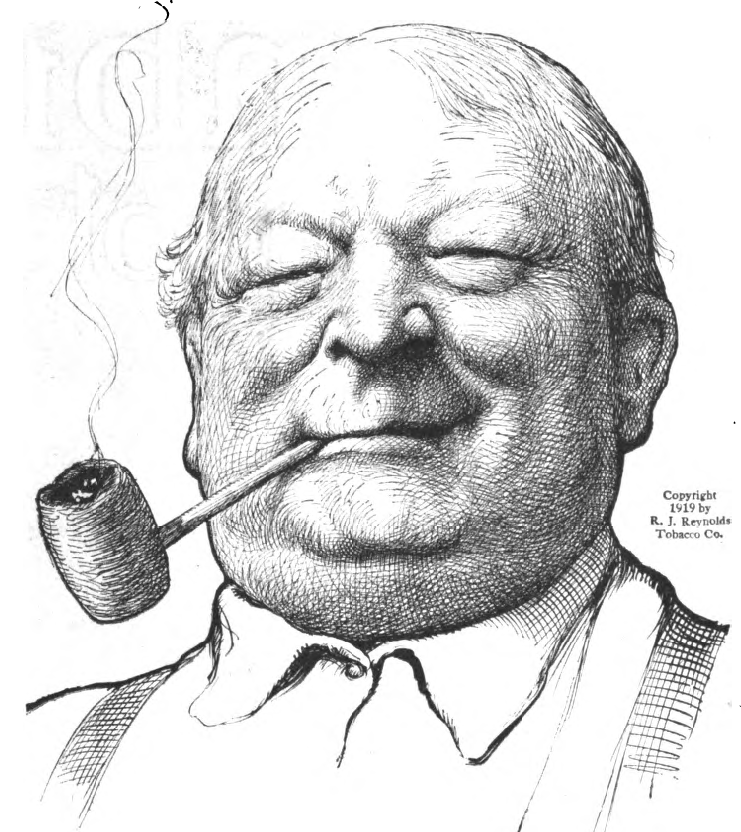In "The Road to Wazoo", I mentioned a striking 1919 advertisement for Prince Albert Tobacco . What was striking was partly the drawing and partly the text:

PRINCE ALBERT
the national joy smoke
Say, you'll have a streak of smokeluck that'll put pep-in-your-smokemotor, all right, if you'll ring-in with a jimmy pipe or cigarette papers and nail some Prince Albert for packing!
Just between ourselves, you never will wise-up to high-spot-smoke-joy until you can call a pipe or a home made cigarette by its first name, then, to hit the peak-of-pleasure you land square on that two-fisted-man-tobacco, Prince Albert!
Well, sir, you'll be so all-fired happy you'll want to get a photograph of yourself breezing up the pike with your smokethrottle wide open! Quality make Prince Albert so different, so appealing. And, P A. can't bite or parch. Both are cut out by our exclusive patented process!
Right now while the going's good you get out your old jimmy pipe or the "papers" and land on some P. A. for what ails your particular smokeappetite.
AG commented that
That ad is incredible. "Mad Men" is an understatement. That's like something you'd get if a roomful of Wodehouses threw typewriters at each others' heads during a gas leak
The ad's language range some kind of bell for me, and this comment from Catherine Arnott Smith nailed the source:
That ad is purest Babbittry, except that the poet Chum Frink, in Babbitt, had to wait until 1922.
Read the rest of this entry »
